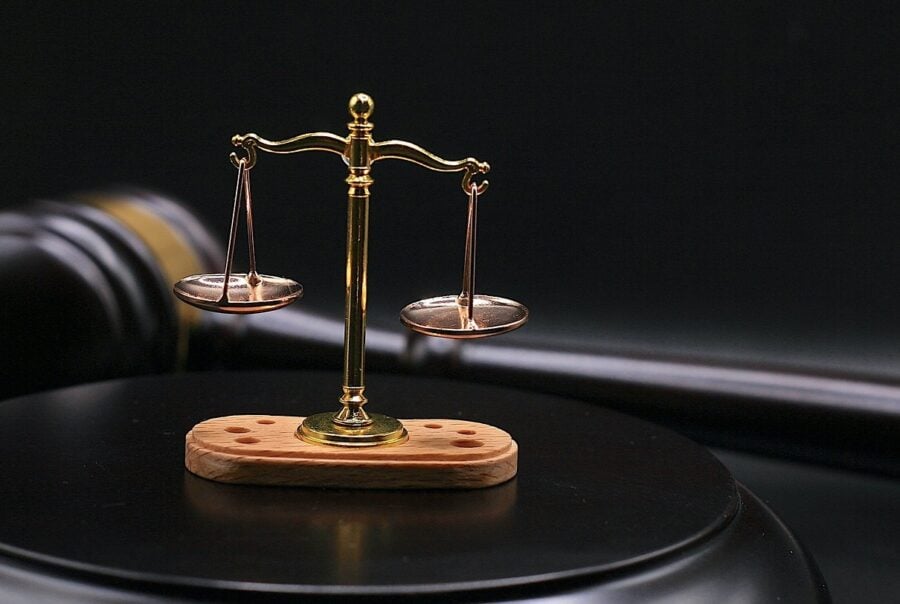Since nearly 80% of SSDI claims are denied in the first round, there is a good chance you will have to appeal your case with the Social Security Administration (SSA). Depending on the SSA office you are working with, an SSDI appeal can last anywhere from a few months to a couple of years.
Whether you failed to prove your medical condition matches the SSA Blue Book or you didn’t provide enough documentation to verify your work history, there are many reasons why your SSDI filing might be rejected. As you enter the appeals process, you should plan on having critical information like supplementary documentation and witness testimonies ready for the SSA.
Even if you originally filed on your own, the House of Justice will find weaknesses in your SSDI case, while also ensuring you have proper representation if your case goes before an Administrative Law Judge (ALJ). Call 1-800-840-4040 to learn more.
Why Do Social Security Claims Get Denied?
Most social security claims get denied because claimants don’t provide ample documentation to prove their medical condition and work history to the SSA.
If you can’t prove your medical condition matches the minimum requirements in the SSA Blue Book, your disability benefits claim will be denied. As the AARP website explains the Blue Book, “lists impairments … [that are] severe enough to prevent someone from working and lays out the medical criteria for determining if that person can receive disability benefits.”
The SSA also has strict work history requirements for SSDI eligibility. To be awarded benefits, most applicants must prove that they legally worked and paid taxes in the United States for 5 of the past 10 years. However, workers under age 31 have slightly more lenient work history requirements, simply because they have had less time to work and pay taxes.
How Does the Social Security Appeals Process Work?
In the event that your initial disability benefits claim is denied, the SSA provides a multi-step appeals process for claimants. More often than not, each step in the appeals process is tied to arguing your case with additional evidence to back your medical condition and work history.
Reconsideration
The first step in your disability benefits appeal is to file a reconsideration. Following the feedback provided by the SSA, your reconsideration must directly address the deficiencies in your original SSDI claim. Once you have reinforced your argument with missing documentation, it will be reviewed by a new SSA employee to avoid any potential bias.
ALJ Hearing
The final step in your disability benefits appeal is to present your case to an ALJ in a court hearing. As the SSA website explains, “during the hearing, the Administrative Law Judge explains the issues in your case and may question you and any witnesses you bring to the hearing. He or she may ask other witnesses to attend the hearing.”
How Long Will It Take to Appeal a Denial of Disability Benefits?
There are many variables that impact how long it will take to complete an SSDI appeal. Importantly, the SSA has “more than 1,200 local field offices [that] provide community-based access to Social Security information and services.” As such, the volume of SSDI applications in a specific social security office will have a direct impact on how long an appeal takes.
Since it generally takes 3-5 months to get an answer from the SSA on your original filing, plan on adding this amount of time on top of both the reconsideration phase and the ALJ hearing.
The SSA generally takes an additional 3-5 months to make a decision in the reconsideration phase. If your reconsideration is rejected, you should plan for the appeals process taking much longer. In total, filing for an ALJ hearing, pleading your case, and getting the judge’s decision often takes up to 2 years.
What are the Chances of Winning a Disability Benefits Appeal?
Successfully filing a social security claim is no easy process. While 80% of applications are denied in the first round, only 10% of them are accepted by the SSA during the appeals process. Yet, you can increase your odds of winning an appeal by working with a skilled disability attorney.
What Happens if You Lose a Social Security Appeal?
If you lose your disability benefits appeal, you can either start the process over again or file an entirely new SSDI claim.
The SSA has not put a limit on the number of times that you can appeal your SSDI claim. If you go through the entire appeals process but are still able to uncover new evidence after the fact, then should file another appeal and start the process over again.
If your appeal is rejected, you can also file an entirely new SSDI claim. While filing a whole new claim is often less effective than submitting an appeal, there are certain situations where this route might be beneficial. For example, if your medical condition gets drastically worse, filing a new claim will get your case seen quicker by the SSA than filing another appeal.
Need Help Appealing a Disability Benefits Claim? Contact the House of Justice
When it comes time to appeal a disability benefits claim, working with a skilled attorney will help you find weak points in your initial application. Not only are the lawyers at the House of Justice experts on SSDI appeals, but our Spanish-speaking attorneys will keep you informed every step of the way.
Contact Us today to get started!
Hours - Monday through Friday from 8am to 6pm. (PST)




